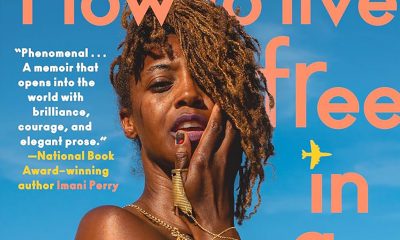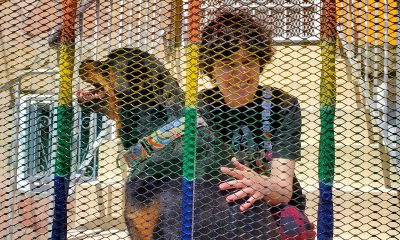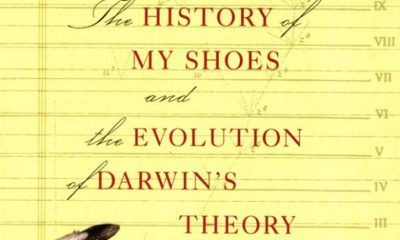a&e features
Corbett Joan O’Toole still fighting for self-determination, respect for disabled people
Author and activist on coming out, intersectionality, and a lifetime of advocacy
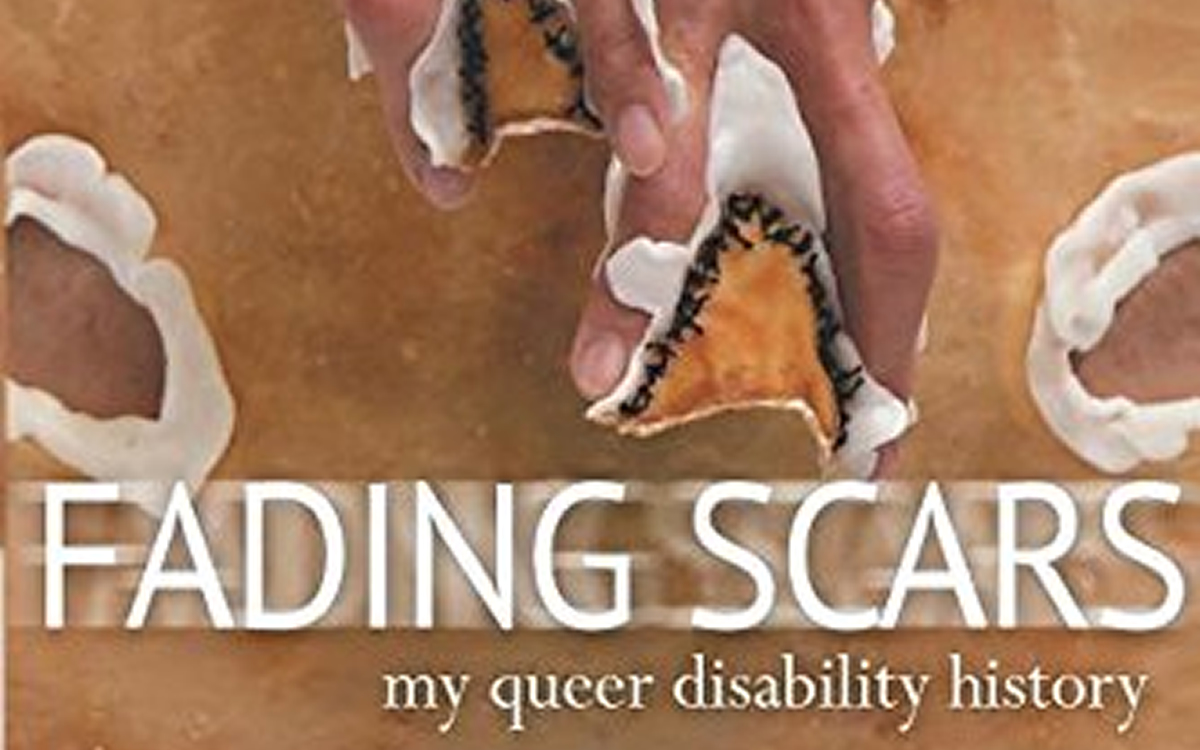
(Editor’s Note: One in four people in America has a disability, according to the Centers for Disease Control and Prevention. Queer and disabled people have long been a vital part of the LGBTQ community. Take two of the many queer history icons who were disabled: Michelangelo is believed to have been autistic. Marsha P. Johnson, who played a heroic role in the Stonewall Uprising, had physical and psychiatric disabilities. Today, Deaf-Blind fantasy writer Elsa Sjunneson, actor and bilateral amputee Eric Graise and Kathy Martinez, a blind, Latinx lesbian who was Assistant Secretary of Labor for Disability Employment Policy for the Obama administration, are only a few of the numerous queer and disabled people in the LGBTQ community. Yet, the stories of this vital segment of the queer community have rarely been told. In its series “Queer, Crip and Here,” the Blade will tell some of these long unheard stories.)
Corbett Joan O’Toole, 71, a queer, disabled elder and a Ford Foundation 2022 Disability Futures Fellow, knew one thing for sure growing up in Boston: She didn’t want to be a nurse.
O’Toole has had a physical disability since she was 12 months old. “I sometimes joke that my becoming disabled was my birthday present when I turned one year old,” she said in a phone interview with the Blade.
O’Toole has used a wheelchair since she was 30. Before that, she walked with crutches and leg braces.
As a child, she’d had surgery, O’Toole said. “I saw what nurses did,” she added. “Men told them what to do. I knew nursing wasn’t for me.”
Even as a child, O’Toole could tell that male employers had the same attitude toward secretaries. “Sitting in an office all day didn’t seem like fun,” she said, “The only other thing a white woman in my generation could be when they grew up was to be a teacher.”
“I decided to be a teacher,” O’Toole added, “where I’d have my own classroom and no man would be telling me what to do.”
When she was young, O’Toole led, by her account, a sheltered life. She didn’t know then that she was queer. “I didn’t know if I met any queer people,” O’Toole said, “but I always knew that I liked strong women. I thought they were interesting.”
And, O’Toole, like many kids and teens with disabilities then (and, even often, now) knew that little was expected of disabled people. That disabled lives weren’t highly valued. “I was in school all the time with nondisabled kids,” O’Toole said.
Nearly everything was inaccessible then from libraries to courthouses to movie theaters. The Americans with Disabilities Act of 1990 (ADA) wouldn’t be passed until decades later. “You were expected to adapt even if things were inaccessible,” O’Toole said.
If you couldn’t make it in an inaccessible world, the attitude was “you don’t have to be here,” O’Toole said.
O’Toole didn’t meet other disabled people except during the summer, when she’d spend a month at a camp for disabled kids. The director and staff were nondisabled, O’Toole said. But at camp, she got to hang out with 90 other disabled kids. O’Toole got to interact with people like herself – disabled kids living vibrant lives. “We explored nature,” she said, “we collected blueberries. Made pancakes.”
There, O’Toole developed her life-long love of sports. As an adult, she has played competitive wheelchair basketball and power soccer. At her childhood summer camp, “We did archery,” O’Toole said, “and played baseball.”
At a time when sexism was the norm, O’Toole got to do things that girls usually couldn’t do at camp. “We went fishing,” she said, “We used power tools in a woodshop,” she said, “It was empowering!”
At camp, if the kids wanted to do something, they’d figure out a way to make it accessible – to make it work, O’Toole added.
O’Toole, author of “Fading Scars: My Queer Disability History,” a groundbreaking book that was a Lambda Literary Award finalist, graduated in 1973 from Fitchburg State University with a bachelor’s degree in education and her teaching credentials. The summer after graduation, she moved with a friend to Berkeley, Calif.

O’Toole was eager to go to California. It would get her out of the cold of New England, where getting around in ice and snow if you’re using crutches or a wheelchair is difficult. “It sounded like fun,” she said. “I’d be in a part of the country where it’s a Mediterranean climate – it’s spring or summer. No snow.”
The move to California was transformative for O’Toole.
There, people thought about disability accessibility. She met queer people and disabled people as well as many nondisabled and disabled lesbians.
“At 23, I came out,” O’Toole said, “I met a woman in a women’s workshop.”
She got to know Kitty Cone, an out disabled lesbian and disability rights movement leader. (Cone died in 2015.) She connected O’Toole to the burgeoning independent living movement. “She brought me to the Center for Independent Living in Berkeley and to the disabled lesbian community,” O’Toole said.
The independent living movement believes in self-determination and self-respect for disabled people. It fights disability-based discrimination and views disability from a cultural and social, rather than a medical perspective. Independent living centers are community-based, non-profit organizations, organized and controlled by disabled people. They provide advocacy, information and other services.
“The Berkeley CIL had a lot of lesbians who were nondisabled,” O’Toole said, “we are the wives of every movement.”
O’Toole came to California at a pivotal moment in disability history – at the beginning of the modern disability rights movement. She quickly became a vital part of that history.
O’Toole, along with Cone and Judith Heumann, the disability rights movement founder who died last month, was a leader in a 1977 nearly month-long occupation by disabled protesters and their allies of a San Francisco federal building known as the “504 sit-in.” As a result of the protest, the Carter administration signed the ‘504′ regulations, which prohibited schools, hospitals, and other entities receiving federal funds from discriminating against disabled people. These regulations were the precursor to the ADA.
“Berkeley became like Mecca,” O’Toole, who is featured in the Oscar-nominated documentary “Crip Camp,” said. “Disabled people came to Berkeley from all over the world.”
In the years since the 1970s, O’Toole’s life has contained more multitudes than even Walt Whitman could have fathomed.
She is a single mom. Her daughter, whom she adopted, has a physical disability. O’Toole was a founder of the Axis Dance Company, an acclaimed ensemble of disabled and nondisabled performers. Currently, she’s working on a novel and traveling in a self-built camper van.
But things haven’t always been easy for O’Toole. Like many disabled parents, especially those who are disabled and queer, she’s encountered prejudice.
O’Toole’s daughter is now 30. Raising her daughter, O’Toole often feared that because she was a single mother, disabled and queer, she’d lose custody of her physically disabled child. It was fraught, O’Toole said, because of the bias against queer and disabled people being parents.
“The courts – the social service system – are all too happy to take your kids away,” O’Toole said.
O’Toole had to fight to get her daughter the services and education she needed.
“Because I was a lesbian, I had to constantly be in the closet,” she said, “our of fear that they’d take my child away if I was out.”
Her lovers, if they were around school system staff, would have to pretend to “just be my friends,” O’Toole said.
For decades, long before intersectionality was a fashionable buzzword, O’Toole, who is white, has thought about the intersection of class, queerness, race, and disability.
“I grew up in a working class neighborhood,” O’Toole said. “My Dad was a firefighter. I was taught a lot about class.”
“But there was a lot of racism embedded in my world,” she added.
It wasn’t until she went to Berkeley and became part of the lesbian community that she was “in rooms with lesbians of color,” O’Toole said.
White women need to listen better to women of color, she said. “We need to follow their lead.”
O’Toole couldn’t believe how much she didn’t know about what women of color experienced. Take just one thing: “I didn’t know that parking tickets could turn into jail sentences,” she said.
“I have to do the work,” O’Toole added, “it’s not their job to educate me. It’s my racism that’s blocking me from the truth.”
Despite all of the difficulties, O’Toole is hopeful. People are resilient. They love and care for each other, she said. “What are you doing to spread hope,” O’Toole asked.
The Blade may receive commissions from qualifying purchases made via this post.
a&e features
Visit Cambridge, a ‘beautiful secret’ on Maryland’s Eastern Shore
New organization promotes town’s welcoming vibe, LGBTQ inclusion

CAMBRIDGE, Md. — Driving through this scenic, historic town on Maryland’s Eastern Shore, you’ll be charmed by streets lined with unique shops, restaurants, and beautifully restored Victorian homes. You’ll also be struck by the number of LGBTQ Pride flags flying throughout the town.
The flags are a reassuring signal that everyone is welcome here, despite the town’s location in ruby red Dorchester County, which voted for Donald Trump over Kamala Harris by a lopsided margin. But don’t let that deter you from visiting. A new organization, Proudly Cambridge, is holding its debut Pride event this weekend, touting the town’s welcoming, inclusive culture.
“We stumbled on a beautiful secret and we wanted to help get the word out,” said James Lumalcuri of the effort to create Proudly Cambridge.
The organization celebrates diversity, enhances public spaces, and seeks to uplift all that Cambridge has to share, according to its mission statement, under the tagline “You Belong Here.”
The group has so far held informal movie nights and a picnic and garden party; the launch party is June 28 at the Cambridge Yacht Club, which will feature a Pride celebration and tea dance. The event’s 75 tickets sold out quickly and proceeds benefit DoCo Pride.
“Tickets went faster than we imagined and we’re bummed we can’t welcome everyone who wanted to come,” Lumalcuri said, adding that organizers plan to make “Cheers on the Choptank” an annual event with added capacity next year.
One of the group’s first projects was to distribute free Pride flags to anyone who requested one and the result is a visually striking display of a large number of flags flying all over town. Up next: Proudly Cambridge plans to roll out a program offering affirming businesses rainbow crab stickers to show their inclusiveness and LGBTQ support. The group also wants to engage with potential visitors and homebuyers.
“We want to spread the word outside of Cambridge — in D.C. and Baltimore — who don’t know about Cambridge,” Lumalcuri said. “We want them to come and know we are a safe haven. You can exist here and feel comfortable and supported by neighbors in a way that we didn’t anticipate when we moved here.”

Lumalcuri, 53, a federal government employee, and his husband, Lou Cardenas, 62, a Realtor, purchased a Victorian house in Cambridge in 2021 and embarked on an extensive renovation. The couple also owns a home in Adams Morgan in D.C.
“We saw the opportunity here and wanted to share it with others,” Cardenas said. “There’s lots of housing inventory in the $300-400,000 range … we’re not here to gentrify people out of town because a lot of these homes are just empty and need to be fixed up and we’re happy to be a part of that.”
Lumalcuri was talking with friends one Sunday last year at the gazebo (affectionately known as the “gayzebo” by locals) at the Yacht Club and the idea for Proudly Cambridge was born. The founding board members are Lumalcuri, Corey van Vlymen, Brian Orjuela, Lauren Mross, and Caleb Holland. The group is currently working toward forming a 501(c)3.
“We need visibility and support for those who need it,” Mross said. “We started making lists of what we wanted to do and the five of us ran with it. We started meeting weekly and solidified what we wanted to do.”
Mross, 50, a brand strategist and web designer, moved to Cambridge from Atlanta with her wife three years ago. They knew they wanted to be near the water and farther north and began researching their options when they discovered Cambridge.
“I had not heard of Cambridge but the location seemed perfect,” she said. “I pointed on a map and said this is where we’re going to move.”
The couple packed up, bought a camper trailer and parked it in different campsites but kept coming back to Cambridge.
“I didn’t know how right it was until we moved here,” she said. “It’s the most welcoming place … there’s an energy vortex here – how did so many cool, progressive people end up in one place?”
Corey van Vlymen and his husband live in D.C. and were looking for a second home. They considered Lost River, W.Va., but decided they preferred to be on the water.
“We looked at a map on both sides of the bay and came to Cambridge on a Saturday and bought a house that day,” said van Vlymen, 39, a senior scientist at Booz Allen Hamilton. They’ve owned in Cambridge for two years.
They were drawn to Cambridge due to its location on the water, the affordable housing inventory, and its proximity to D.C.; it’s about an hour and 20 minutes away.
Now, through the work of Proudly Cambridge, they hope to highlight the town’s many attributes to residents and visitors alike.
“Something we all agree on is there’s a perception problem for Cambridge and a lack of awareness,” van Vlymen said. “If you tell someone you’re going to Cambridge, chances are they think, ‘England or Massachusetts?’”
He cited the affordability and the opportunity to save older, historic homes as a big draw for buyers.
“It’s all about celebrating all the things that make Cambridge great,” Mross added. “Our monthly social events are joyful and celebratory.” A recent game night drew about 70 people.
She noted that the goal is not to gentrify the town and push longtime residents out, but to uplift all the people who are already there while welcoming new visitors and future residents.
They also noted that Proudly Cambridge does not seek to supplant existing Pride-focused organizations. Dorchester County Pride organizes countywide Pride events and Delmarva Pride was held in nearby Easton two weeks ago.
“We celebrate all diversity but are gay powered and gay led,” Mross noted.
To learn more about Proudly Cambridge, visit the group on Facebook and Instagram.
What to see and do
Cambridge, located 13 miles up the Choptank River from the Chesapeake Bay, has a population of roughly 15,000. It was settled in 1684 and named for the English university town in 1686. It is home to the Harriet Tubman Museum, mural, and monument. Its proximity to the Blackwater National Wildlife Refuge makes it a popular stop for birders, drawn to more than 27,000 acres of marshland dubbed “the Everglades of the north.”
The refuge is walkable, bikeable, and driveable, making it an accessible attraction for all. There are kayaking and biking tours through Blackwater Adventures (blackwateradventuresmd.com).
Back in town, take a stroll along the water and through historic downtown and admire the architecture. Take in the striking Harriet Tubman mural (424 Race St.). Shop in the many local boutiques, and don’t miss the gay-owned Shorelife Home and Gifts (421 Race St.), filled with stylish coastal décor items.
Stop for breakfast or lunch at Black Water Bakery (429 Race St.), which offers a full compliment of coffee drinks along with a build-your-own mimosa bar and a full menu of creative cocktails.
The Cambridge Yacht Club (1 Mill St.) is always bustling but you need to be a member to get in. Snapper’s on the water is temporarily closed for renovations. RaR Brewing (rarbrewing.com) is popular for craft beers served in an 80-year-old former pool hall and bowling alley. The menu offers burgers, wings, and other bar fare.
For dinner or wine, don’t miss the fantastic Vintage 414 (414 Race St.), which offers lunch, dinner, wine tasting events, specialty foods, and a large selection of wines. The homemade cheddar crackers, inventive flatbreads, and creative desserts (citrus olive oil cake, carrot cake trifle) were a hit on a recent visit.
Also nearby is Ava’s (305 High St.), a regional chain offering outstanding Italian dishes, pizzas, and more.
For something off the beaten path, visit Emily’s Produce (22143 Church Creek Rd.) for its nursery, produce, and prepared meals.
“Ten minutes into the sticks there’s a place called Emily’s Produce, where you can pay $5 and walk through a field and pick sunflowers, blueberries, you can feed the goats … and they have great food,” van Vlymen said.
As for accommodations, there’s the Hyatt Regency Chesapeake Bay (100 Heron Blvd. at Route 50), a resort complex with golf course, spa, and marina. Otherwise, check out Airbnb and VRBO for short-term rentals closer to downtown.
Its proximity to D.C. and Baltimore makes Cambridge an ideal weekend getaway. The large LGBTQ population is welcoming and they are happy to talk up their town and show you around.
“There’s a closeness among the neighbors that I wasn’t feeling in D.C.,” Lumalcuri said. “We look after each other.”
a&e features
James Baldwin bio shows how much of his life is revealed in his work
‘A Love Story’ is first major book on acclaimed author’s life in 30 years

‘Baldwin: A Love Story’
By Nicholas Boggs
c.2025, FSG
$35/704 pages
“Baldwin: A Love Story” is a sympathetic biography, the first major one in 30 years, of acclaimed Black gay writer James Baldwin. Drawing on Baldwin’s fiction, essays, and letters, Nicolas Boggs, a white writer who rediscovered and co-edited a new edition of a long-lost Baldwin book, explores Baldwin’s life and work through focusing on his lovers, mentors, and inspirations.
The book begins with a quick look at Baldwin’s childhood in Harlem, and his difficult relationship with his religious, angry stepfather. Baldwin’s experience with Orilla Miller, a white teacher who encouraged the boy’s writing and took him to plays and movies, even against his father’s wishes, helped shape his life and tempered his feelings toward white people. When Baldwin later joined a church and became a child preacher, though, he felt conflicted between academic success and religious demands, even denouncing Miller at one point. In a fascinating late essay, Baldwin also described his teenage sexual relationship with a mobster, who showed him off in public.
Baldwin’s romantic life was complicated, as he preferred men who were not outwardly gay. Indeed, many would marry women and have children while also involved with Baldwin. Still, they would often remain friends and enabled Baldwin’s work. Lucien Happersberger, who met Baldwin while both were living in Paris, sent him to a Swiss village, where he wrote his first novel, “Go Tell It on the Mountain,” as well as an essay, “Stranger in the Village,” about the oddness of being the first Black person many villagers had ever seen. Baldwin met Turkish actor Engin Cezzar in New York at the Actors’ Studio; Baldwin later spent time in Istanbul with Cezzar and his wife, finishing “Another Country” and directing a controversial play about Turkish prisoners that depicted sexuality and gender.
Baldwin collaborated with French artist Yoran Cazac on a children’s book, which later vanished. Boggs writes of his excitement about coming across this book while a student at Yale and how he later interviewed Cazac and his wife while also republishing the book. Baldwin also had many tumultuous sexual relationships with young men whom he tried to mentor and shape, most of which led to drama and despair.
The book carefully examines Baldwin’s development as a writer. “Go Tell It on the Mountain” draws heavily on his early life, giving subtle signs of the main character John’s sexuality, while “Giovanni’s Room” bravely and openly shows a homosexual relationship, highly controversial at the time. “If Beale Street Could Talk” features a woman as its main character and narrator, the first time Baldwin wrote fully through a woman’s perspective. His essays feel deeply personal, even if they do not reveal everything; Lucian is the unnamed visiting friend in one who the police briefly detained along with Baldwin. He found New York too distracting to write, spending his time there with friends and family or on business. He was close friends with modernist painter Beauford Delaney, also gay, who helped Baldwin see that a Black man could thrive as an artist. Delaney would later move to France, staying near Baldwin’s home.
An epilogue has Boggs writing about encountering Baldwin’s work as one of the few white students in a majority-Black school. It helpfully reminds us that Baldwin connects to all who feel different, no matter their race, sexuality, gender, or class. A well-written, easy-flowing biography, with many excerpts from Baldwin’s writing, it shows how much of his life is revealed in his work. Let’s hope it encourages reading the work, either again or for the first time.
a&e features
Looking back at 50 years of Pride in D.C
Washington Blade’s unique archives chronicle highs, lows of our movement
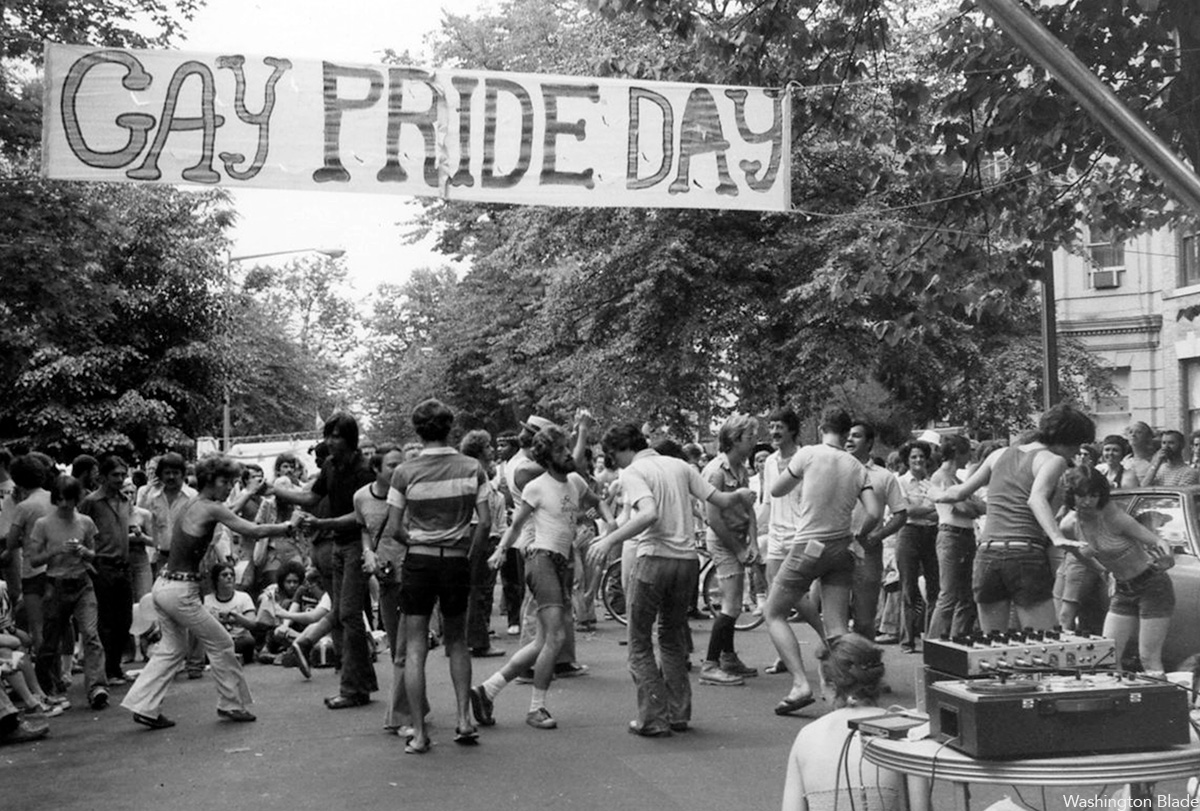
To celebrate the 50th anniversary of LGBTQ Pride in Washington, D.C., the Washington Blade team combed our archives and put together a glossy magazine showcasing five decades of celebrations in the city. Below is a sampling of images from the magazine but be sure to find a print copy starting this week.
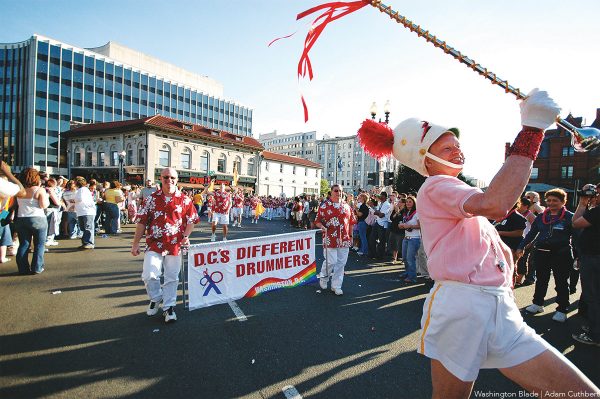
The magazine is being distributed now and is complimentary. You can find copies at LGBTQ bars and restaurants across the city. Or visit the Blade booth at the Pride festival on June 7 and 8 where we will distribute copies.
Thank you to our advertisers and sponsors, whose support has enabled us to distribute the magazine free of charge. And thanks to our dedicated team at the Blade, especially Photo Editor Michael Key, who spent many hours searching the archives for the best images, many of which are unique to the Blade and cannot be found elsewhere. And thanks to our dynamic production team of Meaghan Juba, who designed the magazine, and Phil Rockstroh who managed the process. Stephen Rutgers and Brian Pitts handled sales and marketing and staff writers Lou Chibbaro Jr., Christopher Kane, Michael K. Lavers, Joe Reberkenny along with freelancer and former Blade staffer Joey DiGuglielmo wrote the essays.

The magazine represents more than 50 years of hard work by countless reporters, editors, advertising sales reps, photographers, and other media professionals who have brought you the Washington Blade since 1969.
We hope you enjoy the magazine and keep it as a reminder of all the many ups and downs our local LGBTQ community has experienced over the past 50 years.
I hope you will consider supporting our vital mission by becoming a Blade member today. At a time when reliable, accurate LGBTQ news is more essential than ever, your contribution helps make it possible. With a monthly gift starting at just $7, you’ll ensure that the Blade remains a trusted, free resource for the community — now and for years to come. Click here to help fund LGBTQ journalism.
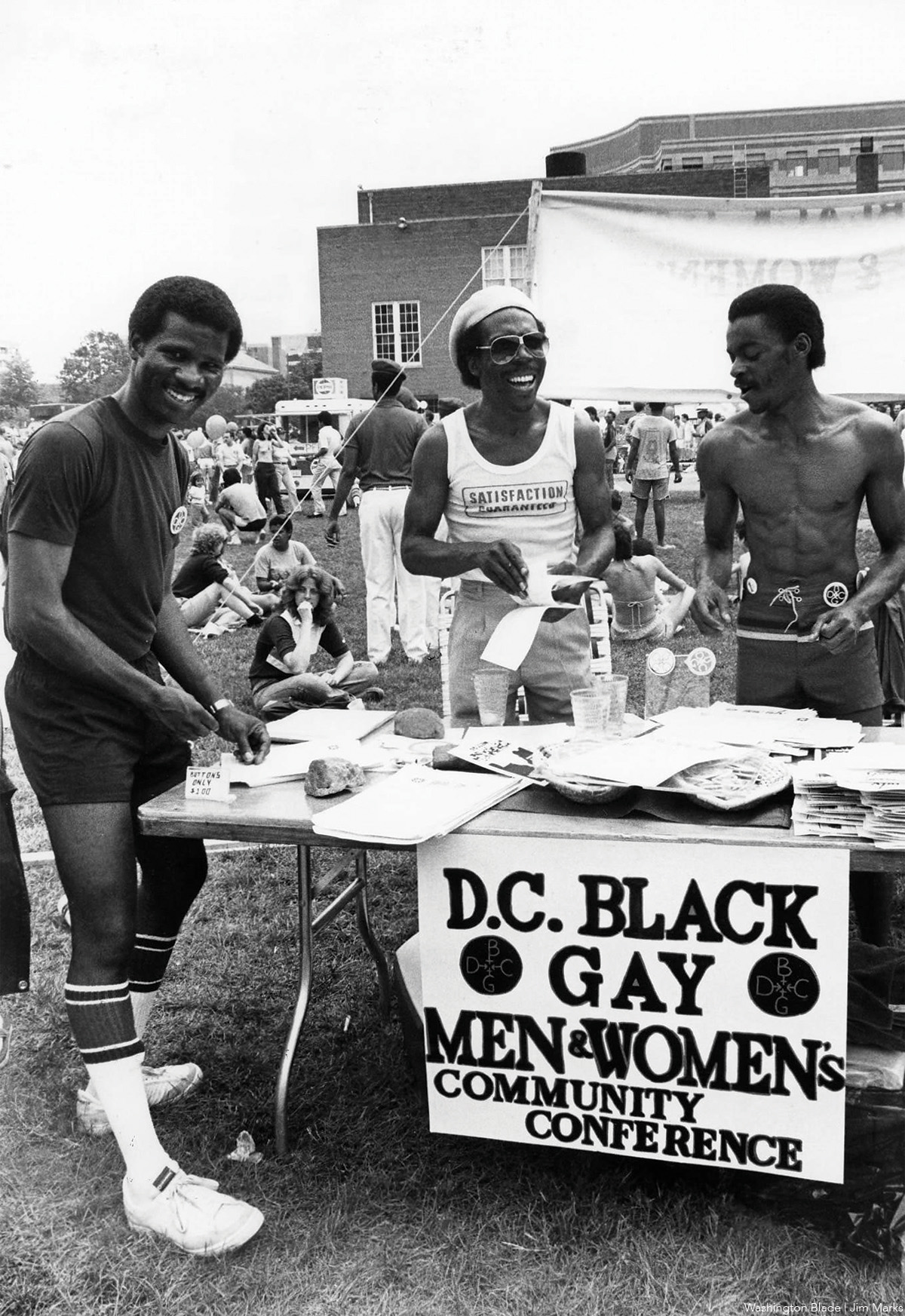
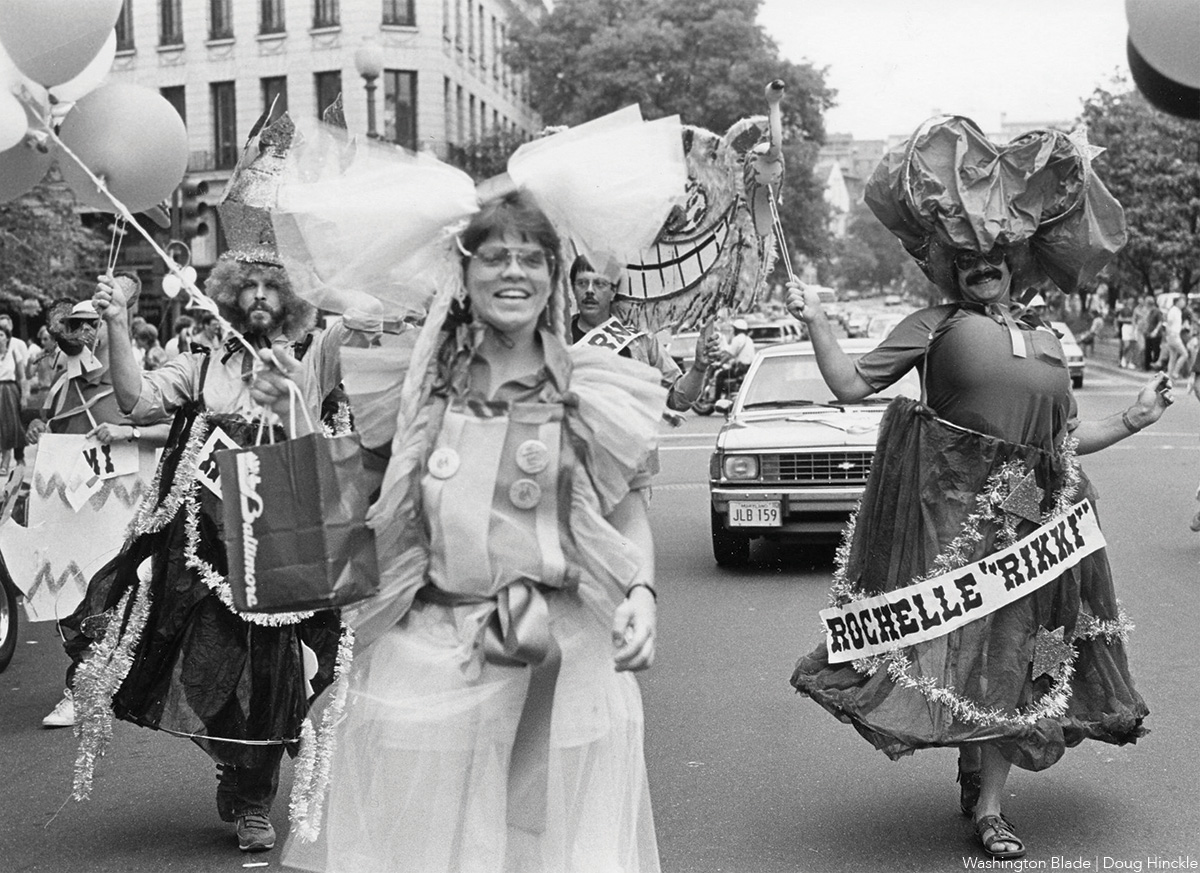

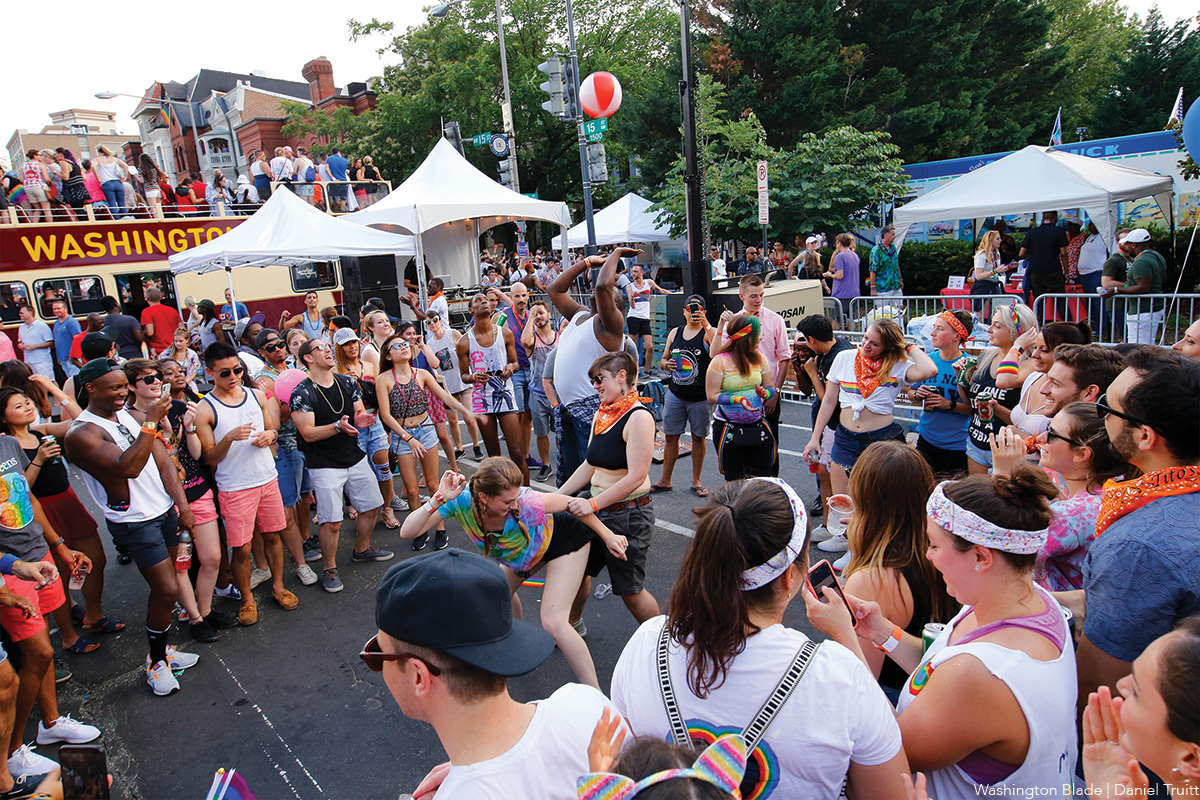
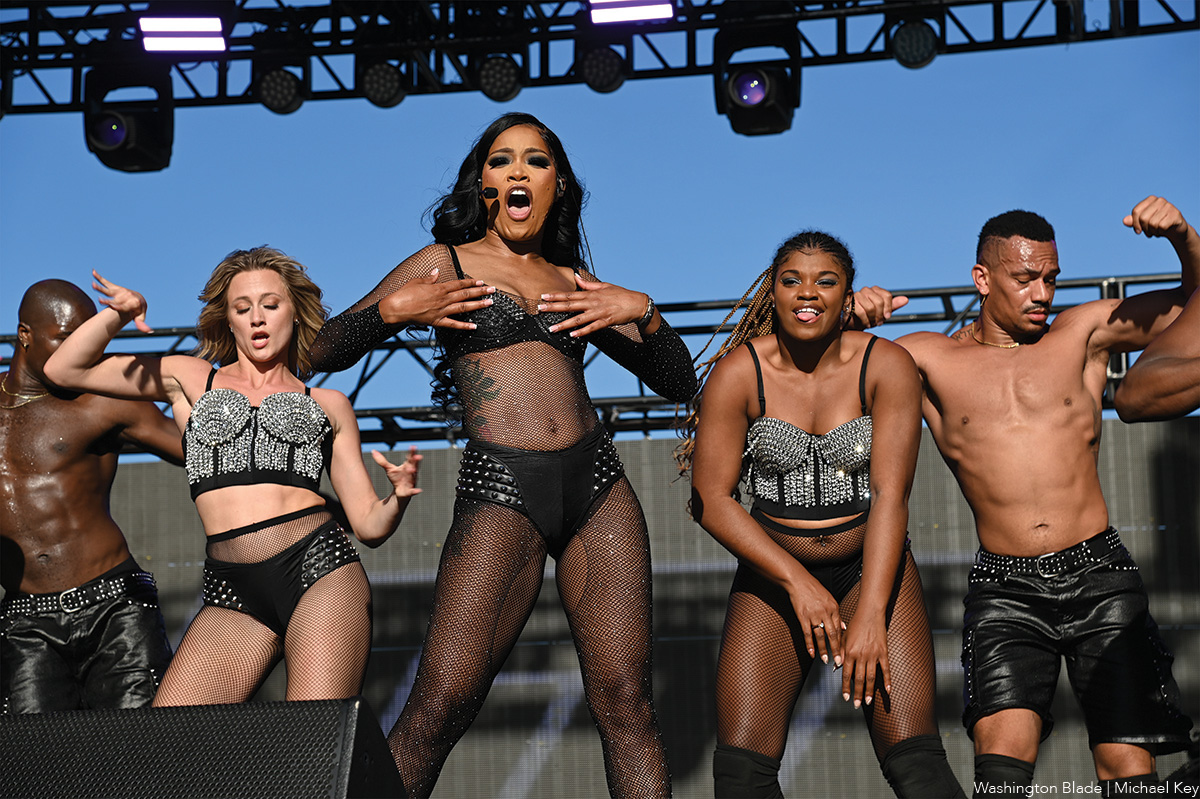
-

 U.S. Supreme Court4 days ago
U.S. Supreme Court4 days agoSupreme Court upholds ACA rule that makes PrEP, other preventative care free
-

 U.S. Supreme Court4 days ago
U.S. Supreme Court4 days agoSupreme Court rules parents must have option to opt children out of LGBTQ-specific lessons
-

 Television5 days ago
Television5 days ago‘White Lotus,’ ‘Severance,’ ‘Andor’ lead Dorian TV Awards noms
-

 Music & Concerts5 days ago
Music & Concerts5 days agoBerkshire Choral to commemorate Matthew Shepard’s life

